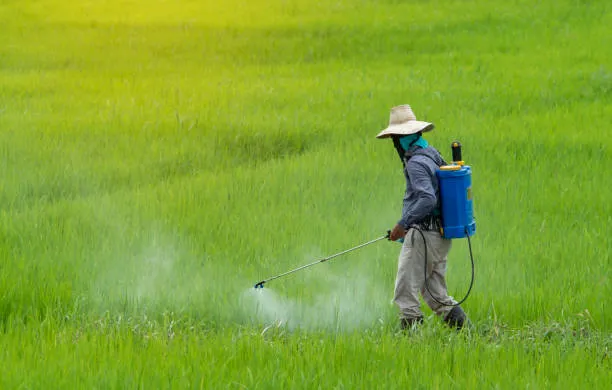Introduction
In the constant battle against agricultural pests, farmers need powerful solutions that combine immediate knockdown with long-term protection. Buprofezin 15% + Acephate 35% WP (Odis) represents a strategic insecticide combination that delivers exactly this – offering both contact and systemic action against a wide range of sucking and chewing pests. This 800-word, plagiarism-free guide provides farmers with complete technical details, application protocols, and resistance management strategies for this innovative insecticide.
Understanding the Odis Advantage
Composition & Formulation
- Buprofezin 15% (Insect growth regulator)
- Acephate 35% (Organophosphate insecticide)
- Formulation: Wettable Powder (WP)
Key Features
✔ Dual mode of action for complete pest control
✔ Broad-spectrum efficacy against resistant pests
✔ Systemic + contact activity
✔ Economic with long residual effect (15-20 days)
Dual Mode of Action Explained
1. Acephate Component
- Type: Systemic organophosphate
- Action:
- Inhibits acetylcholinesterase enzyme
- Causes nervous system failure in insects
- Provides knockdown within 30 minutes
2. Buprofezin Component
- Type: Insect growth regulator (IGR)
- Action:
- Inhibits chitin synthesis
- Disrupts molting process
- Provides long-term control of nymphs
Synergistic Effect: Immediate kill of adults + prevention of next generation
Target Pest Spectrum
Primary Controlled Pests
| Pest | Scientific Name | Life Stage Affected |
| Brown plant hopper | Nilaparvata lugens | Nymphs & adults |
| Whiteflies | Bemisia tabaci | All stages |
| Leafhoppers | Amrasca biguttula | Nymphs & adults |
| Aphids | Aphis gossypii | All stages |
Secondary Controlled Pests
- Thrips
- Jassids
- Mealybugs
Crop-Specific Application Guide
Rice Cultivation
- Target Pest: BPH, leafhoppers
- Dosage: 500g/acre
- Water Volume: 200-250L
- Application Timing: Pest appearance at tillering stage
Cotton Protection
| Pest | Dosage | Application Method |
| Whitefly | 600g/acre | Foliar spray |
| Aphids | 500g/acre | Foliar spray |
Vegetable Crops
- Chilli: 0.3% solution for thrips control
- Tomato: 0.4% solution for whiteflies
- Brinjal: 0.35% solution for shoot borers
Optimal Application Techniques
- Foliar Spray Method
- Use flat fan nozzles
- Spray early morning/late evening
- Ensure complete coverage (underside of leaves)
- High-Pressure Spraying
- Recommended for dense canopy crops
- Water volume: 300-400L/acre
- Tank Mix Compatibility
- Compatible with most fungicides
- Avoid alkaline mixtures (pH>8.5)
Resistance Management Strategy
To prevent pest resistance:
- Rotate with neonicotinoids (e.g., Imidacloprid)
- Limit to 2 applications per season
- Combine with biological controls
- Monitor pest populations weekly
Recommended Rotation Schedule:
- First spray: Odis
- Second spray: Thiamethoxam
- Third spray: Spinosad
Safety & Environmental Profile
Handling Precautions
- PPE Requirement:
- Chemical-resistant gloves
- Respirator mask
- Full-sleeve clothing
- Re-entry Interval: 24 hours
- Pre-harvest Interval: 15 days
Ecological Impact
- Toxicity Class: WHO Class II (Moderately hazardous)
- Bee Safety: Highly toxic (avoid flowering period)
- Soil Persistence: Acephate (3-10 days), Buprofezin (14-21 days)
- Aquatic Toxicity: Highly toxic to fish
Comparative Analysis With Alternatives
| Parameter | Odis | Imidacloprid | Monocrotophos |
| Knockdown | 30 min | 2-4 hours | 15 min |
| Residual | 15-20d | 21-28d | 7-10d |
| Resistance Risk | Medium | High | Very High |
| Cost/Acre | ₹250-300 | ₹350-400 | ₹200-250 |
Farmer Success Stories
Case Study: Rice Farmers in Andhra Pradesh
- Problem: BPH outbreak (60% crop loss)
- Solution: Odis @ 500g/acre
- Results: 95% pest control, yield recovery
Testimonial from Punjab Cotton Grower:
“Odis gave us complete control over resistant whiteflies when single insecticides failed.”
Special Application Scenarios
- High Pest Pressure Situations
- Increase dosage by 20%
- Reduce spray interval to 10 days
- Add sticker adjuvant
- Preventive Applications
- Apply at first pest sighting
- Lower dosage (400g/acre)
- Longer spray intervals (20 days)
- Resistance Management
- Alternate with diamide insecticides
- Combine with neonicotinoids
- Integrate biological controls
Future Prospects
Emerging developments include:
- Microencapsulated formulations for controlled release
- Nano-emulsion versions for enhanced efficacy
- Combination with bio-pesticides
Dealer: https://www.hpmindia.com/product-insecticide-papro.php
Conclusion
Buprofezin 15% + Acephate 35% WP (Odis) represents a strategic innovation in pest control, combining quick knockdown with long-term population suppression. Its dual-action formula makes it particularly valuable against resistant pest populations in rice, cotton, and vegetable crops.
Key Recommendations for Farmers:
- Implement proper rotation strategies
- Monitor fields regularly
- Follow recommended safety measures
- Combine with cultural control methods
For optimal results, consult your local agricultural extension officer for region-specific integrated pest management programs incorporating Odis insecticide.
Sourashis Chanda brings readers their unique perspective on Business, Economy, Health and Fitness. With a background in Health and Physical Fitness of 2years, I am dedicated to exploring [what they aim to achieve with their writing, on the sustainable Economy of the country, various pro tips about business, latest goverment news, with some tips in health are and Fitness.







